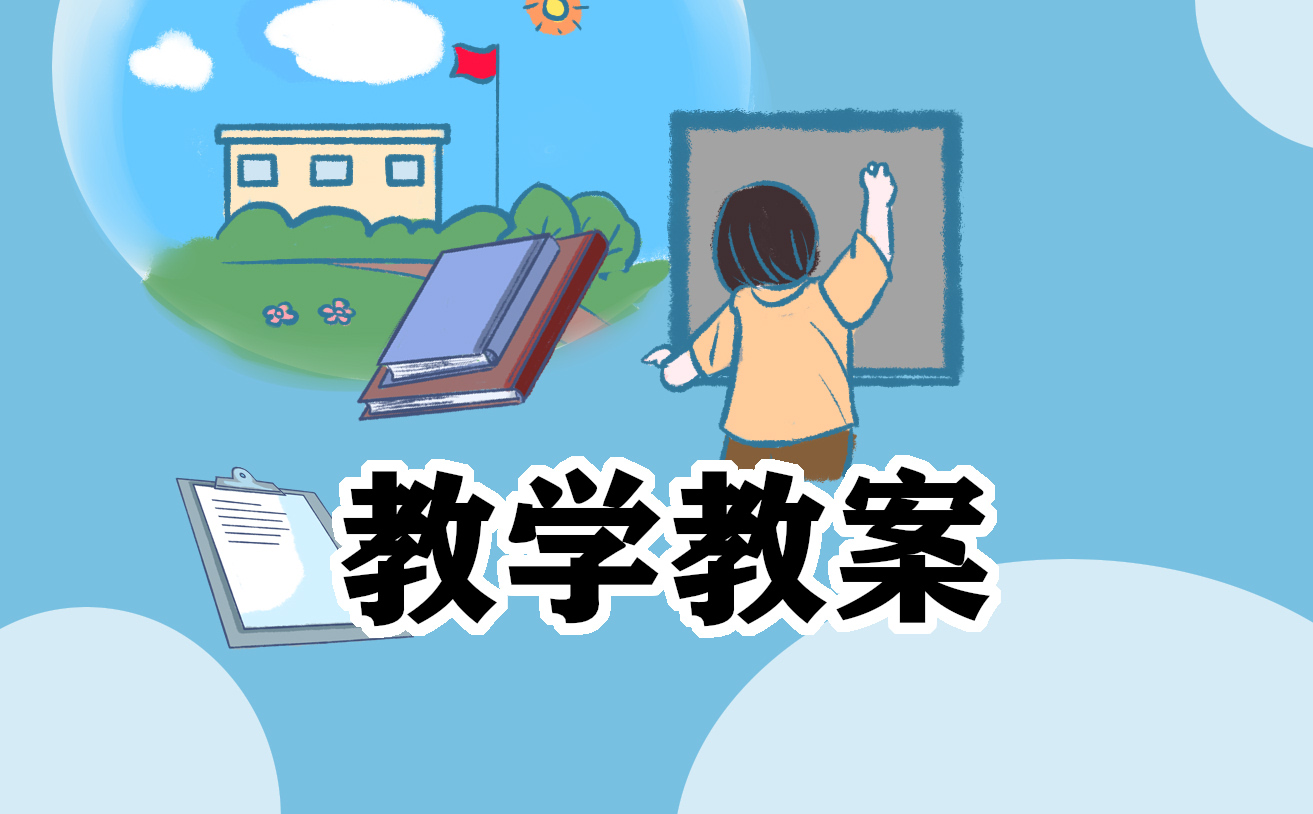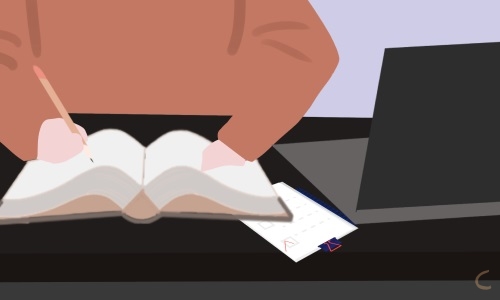通过让学生根据上一课时的购物单进行模拟购物游戏,帮助学生进一步运用所学语言来完成购物任务。一起看看新版人教版四年级上册英语教案!欢迎查阅!
新版人教版四年级上册英语教案1
教学目标:
知识目标
1.通过Listen and say的情景对话,帮助学生理解核心句型的含义和用法。
2.通过Ask and answer 的对话操练,帮助学生在模拟商店的情景中初步运用核心句型来表达意愿,购买食物。
3.通过让学生根据上一课时的购物单进行模拟购物游戏,帮助学生进一步运用所学语言来完成购物任务。
语言技能
学生能够使用购物用语表达自己的需求,成功购买所需物品。
情感态度
学生初步了解中西餐具文化的差异。
教学重点:
1、学生能听懂,会说单词shop,soup
2、学生能用What would you like?询问别人想要什么,并能用I’d like…表达自己想要什么。
教学难点:
学生能区分What would you like?与What do you like?的意义与用法。
教具准备:
录音机、卡片、课件,一些食物图片
教学过程:
Step1:Warm up
1.Greetings.
2.出示卡片,快速闪现,学生复习单词
Step 2: Presentation
1.出示书中“Ask and answer”中的图片
T:Look!This is Happy Shop!Welcome to Happy Shop!Here are many things. What can you see? What do you like? Why? What would you like?Why?
引导学生比较区分What would you like?与What do you like?的意义与用法。
2.出示Mrs Li和Kitty的空白购物单(配图)
T:Mrs Li and Kitty are at the shop.What would they like? How much are they?
Let’s listen.
学生边听边记录,然后回答问题,完成购物清单。
1. 听录音,跟读“Listen and say”中对话
2. 分角色朗读对话。
3. 渗透中西方文化
(1)T: Look at Mum’s shopping list. What can Kitty and hermum eat for dinner?
(教学单词soup)
(2)T: They are Chinese food.We can eat them with chopsticks.
(3)出示Culture corner,学生了解中西饮食餐具上的一些差异,并补充一些文化信息:中餐常用的餐具如chopsticks,plate,spoon; 西餐常用的餐具如knife,fork,spoon,西餐中左手用叉,右手用刀
Step 3: Practice
课件再次出现“Happy Shop”中的食物,同时贴上价格标签。
T:Do you like shopping? Let’s go to Happy Shop. w W w . x K b 1.c o M
模仿Part A,学生三人一组根据自己的需求,模拟购物场景进行购物活动。
Step4: Sum up
总结本节课所学句型及文化知识。
Step5: Homework
1.听读本节课所学的内容
2.熟读本节课所学的对话。
3.抄写核心句型
板书设计:
Unit 8 At the shop
Period 2
Mrs Li’s Shopping List Kitty’s Shopping List
some tomatoes some candy
some eggs some orange juice
some potatoes
some carrots
新版人教版四年级上册英语教案2
一、单词 :
classroom 教室 window 窗户 blackboard 黑板 light 电灯 picture图画
door门 floor 地板 computer 计算机 teacher’s desk 讲台 wall 墙 fan 扇子
near 距离近 really 真的 TV 电视 clean 打扫 help 帮助
二、Let’s spell:
a-e [ei] cake蛋糕 face 脸 name 名字 make制作 hate讨厌;恨 face 脸
a [æ] cat猫 dad爸爸 hat帽子 cap棒球帽 map地图
三、短语:
1.地点类:on the wall在墙上; near the window在窗户旁边 ;in the classroom在教室里;
on the fan在风扇上;near the computer在计算机旁边
2.动作类:clean the desks and chairs 清洁桌椅 ;clean the windows擦窗户
clean the fish bowl清理鱼缸;open the door开门; turn on the light开灯;sweep the floor扫地;
put up the picture张帖图画;clean the classroom打扫教室 ;clean the teacher’s desk 清洁讲台;
close the window 关窗; clean the blackboard 擦黑板
3.其他类:a new classroom一间新教室 excuse me 劳驾,对不起
四、语法点:
where 引导的是特殊疑问句,“哪里”,看到where 就要想到地点,方位词 ,例如on, in ,under, near等
语法点:let’s = let us 让我们; let me 让我
文化知识:.想问别人问题,要先说“excuse me对不起,打扰一下。”
五、答语、答句
1、---Where is it? (它在哪儿?)---It’s near the window. (它在窗户的旁边)
2、---What’s in the classroom? (教室里有什么?)
---One blackboard, one TV, many desks and chairs.
(一块黑板,一台电视,许多的桌子和椅子。)
3、---Let’s clean the classroom! (我们打扫教室吧。)---OK. (好。)
4、---Let me help you. (让我帮你吧!)---Thank you. (谢谢你。)
5、---We have a new classroom. (我们有了一间新的教室。)---Really? 真的吗?
Unit 2 My schoolbag
一、单词:
schoolbag 书包 Chinese book 语文书 English book 英语书 maths book 数学书 storybook 故事书 candy糖果
notebook笔记本 toy玩具 key钥匙 lost丢失 so much非常的 cute可爱的
二、Let’s spell:
i-e [ai] like喜欢; kite 风筝; five 五 ;nine 九;rice米饭; fine 好;nice 好;ice冰
i [i] big大的 six 六 pig 猪
三、短语:
地点类 in your schoolbag 在你的书包里 in your hand 在你的手里
in your desk 在你的课桌里 on your English book 在你的英语书上
under your schoolbag 在你的书包下面 near your pencil box 在你的铅笔盒旁边
Put your Chinese book on your desk. 把语文书放在你的课桌上
Put your pencil box on your English book. 把文具盒放在你的英语书上
Put your maths book under your schoolbag 把数学书放在你的书包下
Put your eraser near your pencil box 把橡皮放在你的文具盒旁边
其他类: have a new schoolbag 有一个新书包 black and white 黑白相间的
四、语法点:
what colour引导的也是特殊疑问句, 问的是颜色,回答中肯定有例如purple, red 等等表示颜色的词。
五、答语、答句
1、---What’s in your schoolbag? (你的书包里有什么?)
---An English book and a Chinese book.(一本英语书,一本语文书。)
2、---Here it is! (它在这儿。)---Thank you so much! (非常感谢。)
3、---What colour is it / (are they) ? 它/(它们)是什么颜色的?
---It’s /( They’re ) blue and white. 它/(它们)是蓝白色的。
---It’s /( They’re ) black and white. 它/(它们)是黑白相间的。
4、Excuse me. I lost my schoolbag.(打扰一下,我丢失了我的书包。)
5、I have a new schoolbag .我有一个新书包。
6、I have an English book and a Chinese book .我有一本英语书和一本语文书。
Unit 3 My friends
一、单词:
strong强壮的 ;friendly友好的 ;hair 头发 ;quiet安静的 ;shoe鞋;glasses眼镜
his 他的 ; or 或者 ;right正确的,对的 ; hat 帽子; her 她的
二、Let’s spell:
o-e [əu] nose鼻子 note 便条 Coke可乐 Mr Jones琼斯先生
hope希望 home家 rose玫瑰
o [ɒ] not不 lot许多 hot 热 box 盒子 dog 狗 lost 丢失 mom 妈妈
三、短语:
an orange bag 一个橙色的包 big eyes大眼睛 a new friend 一个新朋友 short and thin 又矮又瘦 tall and strong 又高又壮 brown shoes 棕色的鞋 blue glasses 蓝色的眼镜 long hair 长头发 short hair 短头发 a green bag 一个绿色的包
四、语法点:
is:是 has/have: 有
语法点:he 他, his 他的, she 她 her 她的
五、答语、答句
1. ---A boy or girl? 男孩还是女孩?---A boy. 男孩。
2. ---What’s his name ? 他叫什么名字?---His name is Zhang Peng .他叫张鹏。
3. ---What’s her name? 她的名字叫什么?---Her name is Amy. 她的名字叫Amy.
4. ---Who is he? 他是谁?---His name is Wu Yi fan. 他叫 Wu Yi fan.
5. ---Who’s she ? 她是谁?---She is Miss White. 她是怀特老师。
Unit 4 My home
一、单词:
bedroom 卧室 living room 客厅;起居室 study 书房 kitchen 厨房 bathroom 卫生间 phone 电话 table 桌子 bed 床 sofa长沙发 fridge 冰箱 find找到 them 他们
二、Let’s spell:
u-e [ju:] use 使用 cute 可爱的 excuse 原谅,道歉 tube管道 mule骡子
u [ʌ] cut切 us我们 fun开心 up向上 bus公共汽车 mum妈妈 duck鸭
三、语法点:
is 开头的句子属于一般疑问句,回答是yes或者no, 然后根据句子的开头进行颠倒变化。
Where are the keys? 钥匙在哪里?Are they on the table? 它们在桌子上吗?
No, they aren’t. 不,它们不是。 They’re in the door. 他们在门里。语法点:1. are 开头的句子属于一般疑问句,回答是yes或no, 然后根据句子的开头进行颠倒变化。
Be(is, am, are) 的用法口诀
我用am,你用are, is连着他,她,它; 单数名词用is,复数名词全用are。
变疑问,往前提, 句末问号莫丢弃。 变否定,更容易,be(am, is, are)后not莫忘记。
疑问否定任你变, 句首大写莫迟疑。
句型:Is she in the living room? 她在起居室里吗?
Yes, she is.是的,她是。No, she isn’t. 不, 她不是。
四、短语:
1. 地点类:in the study 在书房; in the kitchen在厨房 ; in the bathroom在浴室 ;
in your desk 在你的课桌里 ; in your hand 在你手里; on the table 在桌子上;under the table在桌子下 ; on the fridge在冰箱上;near the phone 在电话旁边 ;on the bed 在床上
2. 动作类: watch TV 看电视 read a book 看书 have a snack吃点心
have a nap 睡一会儿 open the door 开门 look at 看
Go to the living room. Watch TV去客厅,看电视
Go to the study. Read a book去书房,读书
Go to the kitchen. Have a snack去厨房,吃零食
Go to the bedroom. Have a nap去卧室,睡觉
Go to the bathroom. Take a shower. 去浴室,洗澡
五、答语、答句
1.---Is she in the living room ? 她在客厅里吗?
---No , she isn’t. 不, 她不在。 / Yes, she is. 是,她在。
2. ---Are they near the phone ?它们在电话旁边吗?
---No , they aren’t . 不,它们不在。 / Yes, they are. 是的,它们在。
3. ---Where is the cap ? 帽子在哪里?---It’s on the bed.它在床上。
4. ---Where are the keys ? 钥匙在哪儿?
---Are they on the table ? 它们在桌子上吗?
---No , they aren’t . They’re in the door . 不,不在。它们在门上。
5. ---Where are the keys?钥匙在哪儿?---They’re on the fridge. 它们在冰箱上。
6. ---Open the door, please. 请打开门。 ---OK. 好的
7. --- Is she in the study? 她在书房里吗?
---No, she isn’t . 不,她不在。 /Yes, she is. 是,她在。
8. ---Is it in your hand ? 它在你的手里吗?
---Yes,it is!是的,它在。 / No, it isn’t. 不,它不在。
Unit 5 Dinner’s ready
一、单词:
beef 牛肉 ;chicken 鸡肉;noodles 面条(复数);soup 汤 ;vegetable(s) 蔬菜(复数);chopsticks 筷子(复数);bowl 碗 ;fork叉子;knife 刀 ;spoon 勺子; dinner正餐 ;
ready准备好;help yourself 请自便, 随便吃; pass 给,递; try 尝试
二、Let’s spell:
e [i:] me 我 he 他 she 她 we我们 be be动词
e [e] bed床 red红色 pencil铅笔 get得到 let让
三、短语:
some beef 一些牛肉 some vegetables 一些蔬菜 I’d like = I would like 想要 a knife and fork 一副刀叉 five yuan 5元 here you are 给你 help yourself 随便吃吧 on my dish 在我盘子上pass me the bowl 递给我碗 pass me the knife 递给我刀 Let’s try it. 让我们试试 cut the vegetables 切蔬菜 use the spoon用勺子 use the fork 用叉子
四、答语、答句
1. ---What would you like for dinner ?晚餐你想吃什么?
---I’d like some soup and bread , please . 我想要汤和面包。
2. ---Would you like a knife and fork ? 你想要刀叉吗?---No , thanks .不了,谢谢。
3. ---Would you like some soup?你想要来点汤吗?---Yes, please.好的,请来一点儿。
4. ---What would you like?(你想吃什么?)
---I’d like some vegetables , please.(我想吃蔬菜)
5. ---What would you like for dinner?(晚餐你想吃什么?)
---Some fish and vegetables, please.(鱼和蔬菜)
6. ---Dinner’s ready! (晚餐准备好了)---Thanks! (谢谢)
7. ---Would you like some soup?(你想要汤吗?) ---Yes, please!(好的。)
8. ---Would you like a knife and fork? (你想要刀叉吗?)
---No, thanks. I can use chopsticks. (不,谢谢,我会用筷子。)
9. ---Can I have a knife and fork, please? (我能用刀和叉吗?)
---Yes. But try chopsticks for noodles. (可以。但试试用筷子吃面条。)
Unit 6 Meet my family
一、单词:
family 家庭;parents 父母;cousi表兄弟姐妹,堂兄弟姐妹 ;uncle叔伯舅姑姨父
Aunt 姑姑、婶、姨; baby brother 婴儿小弟弟;doctor 医生; cook 厨师; driver 司机
farmer农民nurse 护士 people人们 but但是 little 小的 puppy小狗
football player足球运动员 job工作 basketball 篮球
二、句型:
Meet my family. 见见我的家人。
How many people are there in your family, Chen Jie? 你家里有多少人, 陈洁?
Three.三口人。
My family has six people. 我家有六口人。
三、语法点:
以How many引导的是特殊疑问句,问的是多少,要用数字回答。
Is this your uncle? 这是你叔叔吗?
Yes, it is. He’s a football player. 是的,他是位足球运动员。
What’s your aunt’s job? 你婶婶做什么工作的?
She’s a nurse.她是一位护士。
语法点:what’s your…job? 也是特殊疑问句,问的是职业,后面回答会出现有关职业的词,例如teacher, farmer等。
Is this your uncle? 这是你的阿姨吗?
Yes, he is. 是的,他是。
语法点:is this 是一般疑问句,回答是yes或者no. 但注意的是后面的词。下面就看三个例子。
Is this your bedroom? 这是你的卧室吗?Yes, it is. 是的,它是。/ No, it isn’t.
Is this your father? Yes, he is. / No, he isn’t.
Is this your mother? Yes, she is. / No, she isn’t.
What’s your mother’s job? 你妈妈是做什么的? She’s a teacher. 她是一名教师。
What’s your father? 你爸爸是做什么的? He’s a doctor. 他是一名医生。
Are they farmers? 他们是农民吗?
Yes, they are.是的,他们是。 / Yes, you’re right.是的,你说对了。
No, they aren’t.不,他们不是。
四、短语:
on the tree 在树上 on the cake 在蛋糕上 tall and strong 又高又壮
a cup of 一杯 cut the cake 切蛋糕 a football player 一位足球运动员
五、答语、答句
1.---How many people are there in your family ?你家有几口人?---Three . 三口人。
2.---Is this your uncle ? 这是你叔叔吗
---Yes , he is. He’s a football player . 是的,他是位足球运动员。
3. ---What’s your aunt’s job ? 你婶婶做什么工作?---She’s a nurse . 她是位护士。
4. ---What’s your father’s job? / What’s your father? (你爸爸是干什么工作的?)
---My father/ He is a doctor. (我爸爸是个医生。)
新版人教版四年级上册英语教案3
一、课题名称:
workbook
二、教学内容:
复习、练习课
三、教学目标:
复习内容
1.关于衣服的单词。
2.购物用语。
3.由whose提问的问句及其回答。
四、教学重、难点:
1.购物用语的复习。
2.由whose提问的问句及其回答。
五、教学媒体
录音带
六、教学过程:
1.复习衣服的单词
(1)记忆已学的服饰类单词。
(2)猜图游戏。
2.复习whose的句型。
(1)看图说句子:Whose … is/are …? It’s /They’re…
(2)同位操练句子。
3.复习购物用语。
(1)学生说出已学的购物用语。
(2)创设情景,学生自编对话。
4.学习Let’s Go Further
(1)听录音,理解课文内容。
(2) 跟读课文。
5.布置作业
(1)听读已学的课文。
(2)《活动手册》
七、教学反思
本单元的数字、衣服类单词较多,刚开学不久学生还懒于记忆单词,人名所有格和复数的表示法容易混淆。Whose与who’s 的区别与应用有待巩固。
新版人教版四年级上册英语教案相关文章:
★ 英语人教版四年级上册教案模板
★ 四年级人教版英语上册教案优秀范文
★ 四年级人教版英语上册教案范文
★ 四年级英语上册教案人教版模板
★ 四年级英语教案人教版模板
★ 四年级英语优秀教案
★ 四年级英语教案上册模板
★ 小学四年级英语教案范文大全
★ 最新版冀教版四年级英语上册教案模板
★ 关于四年级英语教案范文合集大全
新版人教版四年级上册英语教案
上一篇:新版四年级下册英语教案
下一篇:返回列表



